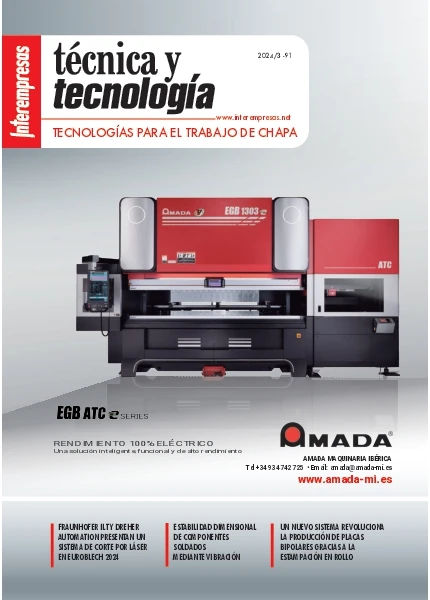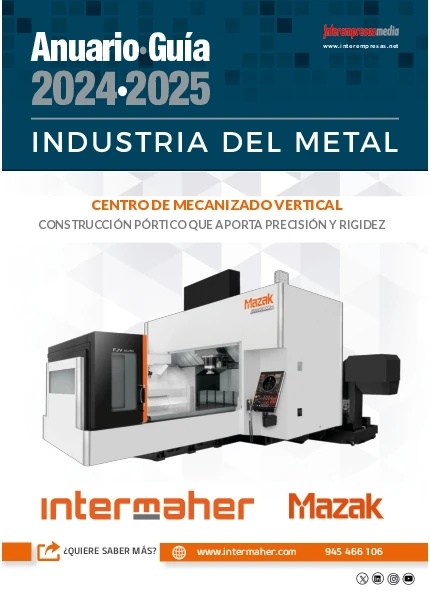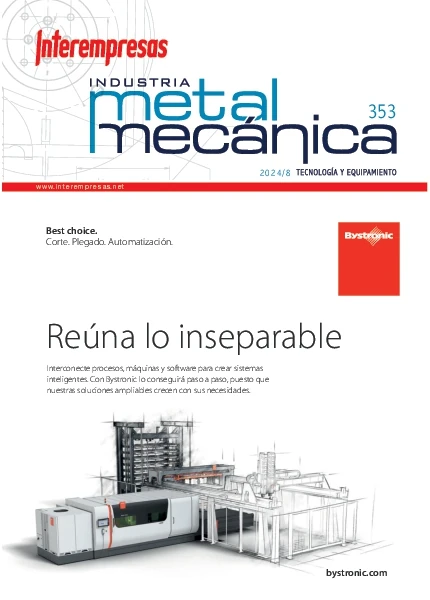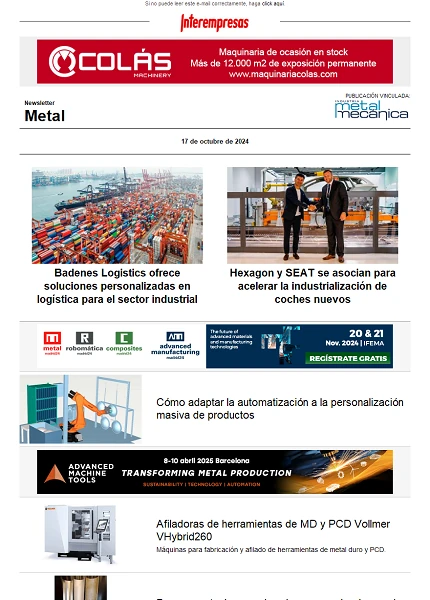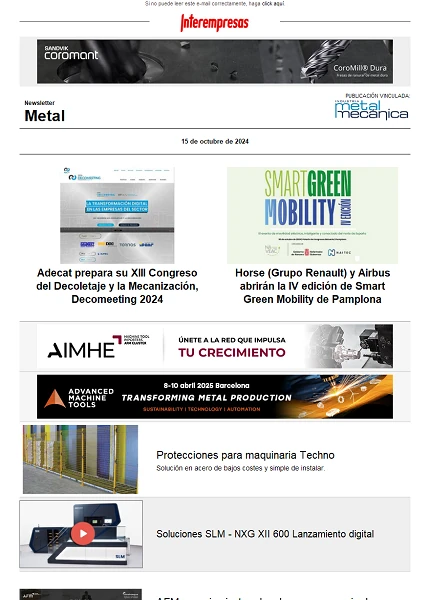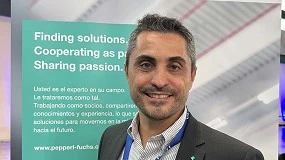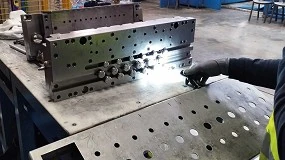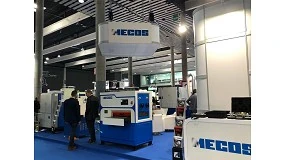The plastic: A green material?
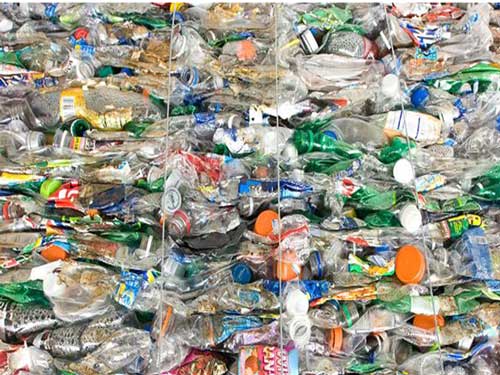
Many pose until which point is compatible the plastic with our surroundings, with the environingingment. Teresa Martínez, general director of
As it explains, the sector of the plastics represents 2% of the GDP in Spain, and integrates to more than 4.000 companies in our country, that give work to more than 95.000 people. “In Andalucia and Murcia cultivates with support of the plastics, attaining that Spain was one of the main providers of fruit and vegetables of high quality in Europe”. And it is that the high level of economic development of a country goes always associated to the proportionate innovations by the plastic materials in applications such as the transport and the communications.
The director of Cicloplast sustains that with the use of the plastics saves power and reduce the broadcasts. “Only we have to think in the insulating materials of a building, the pieces of high provision of use in car or the intelligent containers that protect our foods”. And it puts like example a car. “It contains of average a 15-20% of plastics and thanks to them save 12 million tonnes to the year of oil and reduce in 30 million tonnes the broadcasts of CO2”.
Another example: the necessary power to manufacture an isolation of foam of plastic recovers in the first four months of utilisation. Besides, according to Martínez, during the half life of the isolation reduce in 290 million tonnes the broadcasts of CO2.
On the other hand the plastics contribute to the welfare and social progress in fields like the health where the implantation of cardiac valves, prosthesis or ocular lens have been possible thanks to the plastics. Also it stands out his paper in education: “The present plastics in computers, tablets or mobiles have facilitated the access to the information and to the communication”.
The plastics save resources and power
Nowadays the plastic materials and his different processes of transformation can give answer to the needs of a lot of sectors since they can substitute to traditional materials like the metal, the glass or the wood. Some of his technical characteristics like his high resistance and versatilidad in the design or his ligereza, turn it into an optimum material, explains the director of Cicloplast. In a lot of occasions, this replacement supposes big energetic savings and, therefore, an important reduction of the broadcasts of CO2 associated.
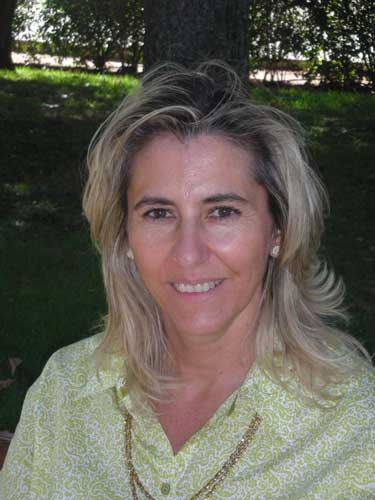
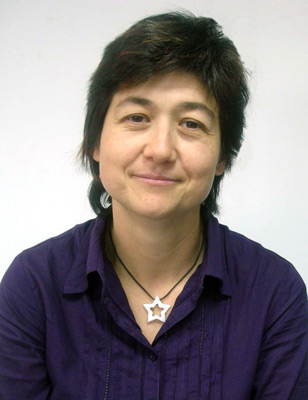
Day of Sustainability, Recycled and Valorisation of the plastic
The School of Businesses Lluís Live of the Camera of Valencia will receive the next 20 November the Day-Debate of Sustainability, Recycled and Valorisation of the plastics, an initiative promoted and supported by centres, associations and companies of the sector of the plastic, in which they will debate questions on sustainability, recycled and valorisation that affect to the group of the society.
In the evento, organised by Aimplas and Cicloplast, will present a study in which evidence the increase of the consumption of resources, and his consistent environingingmental impact, if remplazaran the plastic materials by other alternative materials.
The day, in which it participates like moderador Ibon Linacisoro, director of the magazines Interempresas, is headed to technicians of the public servicy, companies of the industrial state and technological, universities and technology centres.
Consult the program of the day
The recycled of the plastic
The plastics at the end of his useful life have a material and energetic value that it is possible to recover. However, it aims the director of Cicloplast, in Spain, 54% of the plastic waste go to stop to the dump. “The recycled material is the main form of recovery. They obtain new products of plastic recycled from the residue triturado, wash and processed thanks to the activity of more than 100 industries recicladoras of plastic installed in Spain”.
But, what occurs with the recycled energetic? Whereas in the recycled material of the plastics Spain shows a similar index to the European average (26%), when it treats of recycled energetic are to a very inferior level (20%) that the rest of Europe, especially if we compare us with leading countries in environingingment like Germany (66%), Denmark (71%) or Belgium (66%), comments Martínez. “From Cicloplast, bet by the aprovechamiento of the material and energetic value. If it produces a solid fuel recovered from plastic waste, achieves an important reduction in the broadcasts of gases of effect invernadero of any installation that use conventional fuel”.
The power of the waste, another form of renewable power
The plastics can act like “an excellent green fuel”, since have a power calorífico similar to the natural and upper gas to traditional fuels like the fuel oil and the coal.
If the plastics are power, why bury power? The question is how avoid that the plastics finish in dumps. Martínez seems to have the solution: “It Is necessary to apply integrated cheese cheese politics of gestión that combine the recycled material and the energetic”.
In Spain earns a lot of importance the research of sources of alternative power, because of our strong energetic dependency. “The energetic valorisation of plastic waste considers renewable power”, affirms Eva Verdejo, responsible of Recycled and Environingingment of the Technological Institute of the plastic (
The legislation that regulates the plastic like residue
Advances the legislation in the suitable gestión of plastic waste? For Eva Verdejo, of Aimplas, yes. “The Directive Mark of Waste (Managerial 2008/98/CE), for example, is very positive since it establishes and reinforces concepts like the recycled or the energetic valorisation and especially the prevention. Nevertheless, puntualiza Verdejo, “there are other appearances that have to improve, as for example, the responsibility expanded of the producer, that if it defines properly can give an impulse to the valorisation of plastic waste”
Regarding the sectorial legislations (automotive sector or electrical-electronic) Aimplas considers that it would be positive to mark aims of valorisation by materials, as it already occurs in the legislation of containers and waste of containers (Managerial 94/62/CE and his back modifications). Besides, of complementary form to these legislations, it would be necessary incidir in a regulation of realistic “dumps”, regarding the materials that would have to exclude of this destination, as well as in a homogenización of prices between dumps —so much to level of countries as of regions inside a same country— that prevent the transfer of waste of a place to another and favour the valorisation of waste. “It is necessary the investment and the support in R&D, so that the aims and put foreseen in the legislation translate in a reality and reach like this a model of development more sustainable”, aims the manager of Recycled and Environingingment of Aimplas.
The plastic in society
The organisations that represent to the industry of the plastics have still a lot for doing in the task to inform and form to the citizen, since, as it affirms the director of Cicloplast, exists a wide desconocimiento on the reality of this material. “Almost anybody knows that the plastics, in his first useful life, contribute advantages for the environingingment”, sustains. In this sense, Cicloplast is giving conferences, courses and days to diverse publics disassembling the false myths on the plastics in his relation with the environingingment.
In spite of the little information or desinformación of the citizen on the profits of the plastic for our society, his degree of commitment with the recycled seems to go in increase in the last years. “The citizen participation in the collected selective of the plastics in the yellow container is every time better in quantity and, especially, in quality. It seems that there is a lot of less errors. Have in Spain an index of improper similar to the European average. And this that begin later that they”, comments in this regard Martínez.
In 2011 Spain recycled 344.589 tonnes of plastic of domestic origin. This supposes an increase of the recycled of plastics in a 6,7 % regarding the previous year, and confirms the ascending tendency of the last years with a rhythm of growth of 18% of annual average. Whereas in other European countries only recycle the bottles, in Spain recycle all type of plastic containers. Bottles of milk or water, tarrinas of dairy, containers of shampoo or of white cork, stock exchanges and films of plastic can be deposited in the yellow and all they will recycle , thanks to the System of green Point, managed by Ecoembes. In opinion of Cicloplast, to continue improving it is necessary to follow betting by activities of environingingmental education, in addition to projects of investigation that contribute solutions ecoeficientes and sustainable to the final markets for the plastics recycled.
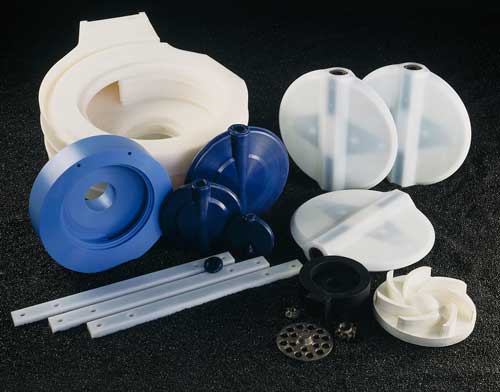
The investigation in plastic materials
The field of the plastic materials is a constant source of technological advances in the wide variety of applications in which they are included. Some of these advances, explains Eva Verdejo, of Aimplas, are related directly with the sustainability as, for example, the use of materials recycled, biodegradable or pertinent of renewable sources, the development of new technologies of processed and of treatment of surfaces more efficient and with a lower energetic consumption, or the recycled of complex waste and of application in sectors of greater value added.
Other advances do not pursue directly the sustainability, although they have to develop taking into account this premise. In this group, Verdejo stands out the use of the nanotechnology, that will allow to endow to the plastic materials of the future of new properties as, for example, conductivity, material that no rayen, that increase the conservation of the foods that pack or material that clean by himself same or autorreparen. “The list is very wide, because the possibilities of the plastic materials also are it”, sustains the researcher of Aimpas.
The future of the plastic
Thanks to his multiple qualities and provision, the plastic is the first option like material in a lot of applications and different sectors. The developments realised in the last years have allowed to the plastic surpass barriers before unthinkable. Like this, it explains Verdejo, in containers have llevar alternative developments to the metal and the glass for preserves. Under construction, they exist material composites that allow to develop alternative elements to the concrete or the metal, whereas in automotive sector, the percentage of plastic has increased thanks to the new functionalities that offers the material and that allow an important energetic saving because of his elder ligereza. In other sectors like the aeronautical sector component manufacturing sector component manufacturing, have achieved coatings that avoid the ice in the wings of the aeroplanes, and in nautical, have developed resistant materials to the impact of bullet. “The plastic also has positioned like reference in the electrical sector-electronic and of sport and leisure, among others. The possibilities and the examples are infinite”, ensures Verdejo.
The manager of the department of recycled and environingingment of Aimplas remembers that in all the sectors still remains a lot of way that visit. “It has achieved a lot, but it is necessary to follow advancing in the investigation, the development and the innovation, and also in the learning and in the diffusion”, sentence Verdejo.


